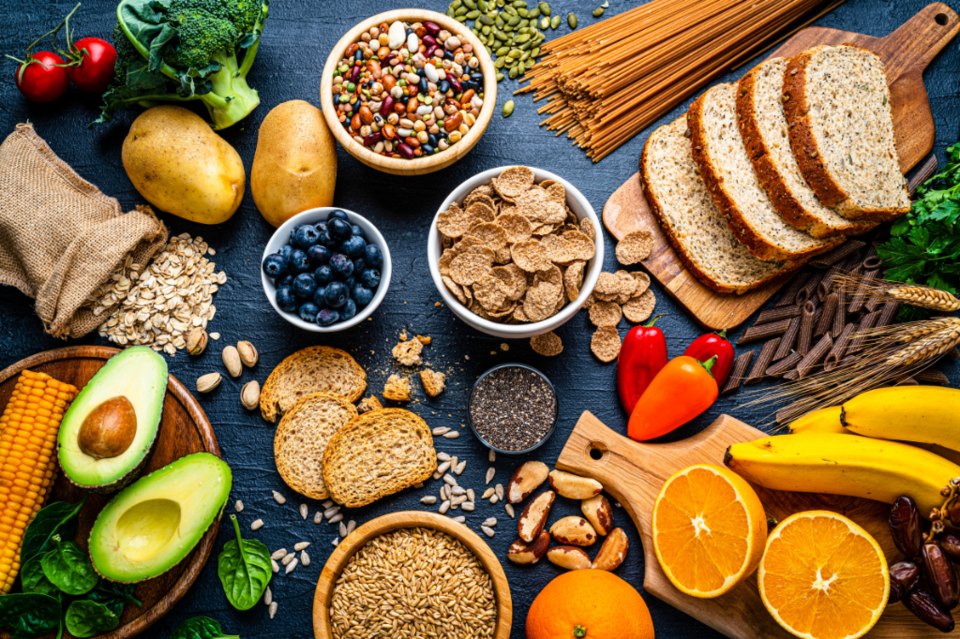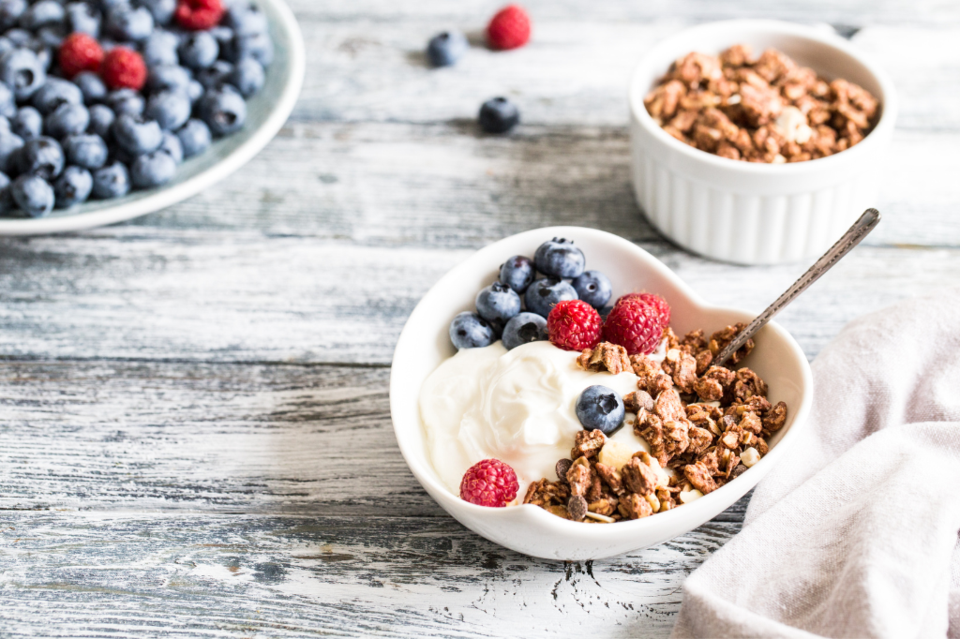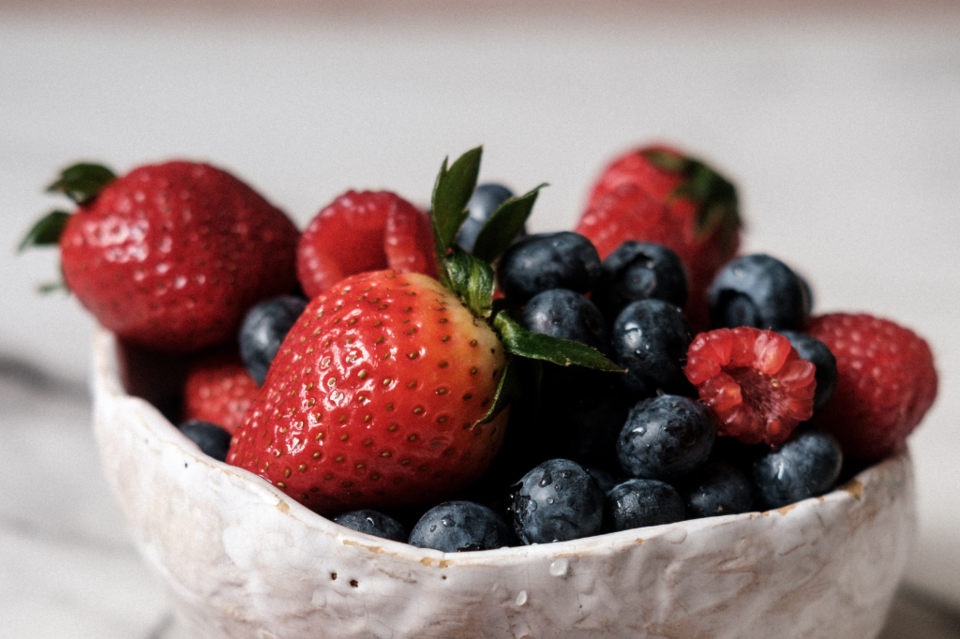Fibre—we know we need it, but some of us might scratch our heads a little if we are pressed to explain precisely why.
From promoting gut health to aiding in weight management, fibre is a nutritional powerhouse that shouldn’t be overlooked in your day-to-day meal planning.
Grab a fibre-rich snack, and let’s take a closer look at this essential nutrient, why it should be prioritized and how to get more of it regularly.
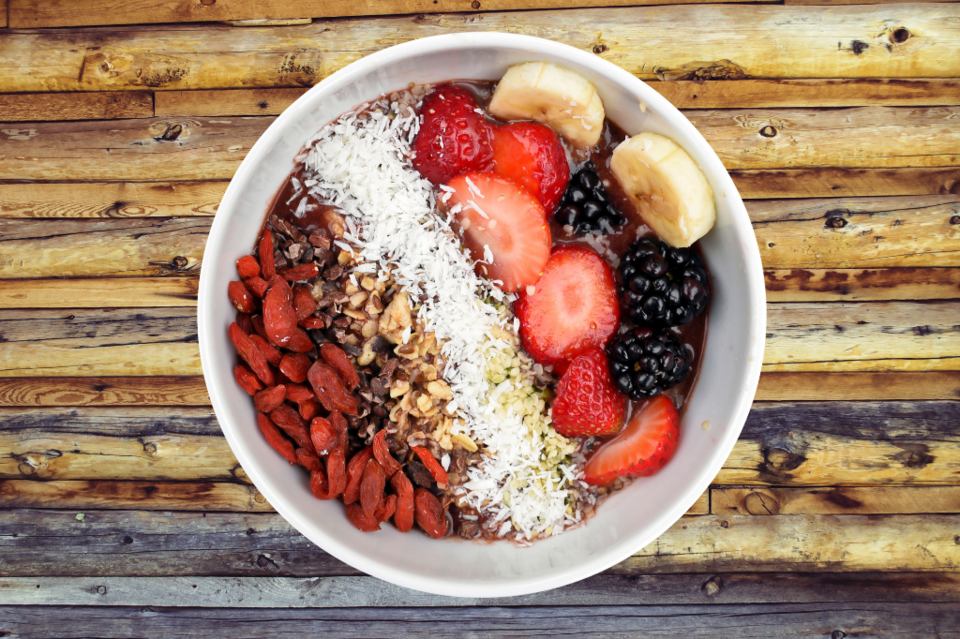
Why Your Body Loves (And Needs) Fibre
Have you ever felt sluggish or bloated after a heavy meal? That's where fibre comes in and saves the day! Fibre is the indigestible part of plant foods that move through our digestive system relatively intact, providing many health benefits.
Studies show that fibre is critical in maintaining digestive health by promoting regular bowel movements and curbing constipation. Additionally, soluble fibre in foods like oats and beans can help lower cholesterol levels, reducing your risk of heart disease.
On the other hand, insoluble fibre, found in vegetables and whole grains, adds bulk to stool and aids in efficient waste removal from the body. So, next time you reach for a snack, think of fibre-rich foods—a berry-granola parfait or trail mix—for a happy gut!
Soluble vs. Insoluble Fibre
What’s the difference between soluble and insoluble fibre, you ask? Soluble fibre dissolves in water to form a gel-like substance inside the digestive tract, slowing digestion and promoting a feeling of fullness. This type of fibre also helps control blood sugar levels by delaying the absorption of sugar into the bloodstream—two helpful functions when it comes to weight loss or weight management.
Insoluble fibre remains intact as it passes through the digestive system, adding bulk to stool and aiding in regular, healthy bowel movements. Both types are essential for overall health, so it's crucial to include a variety of fibre-rich foods in your diet for optimal benefits.
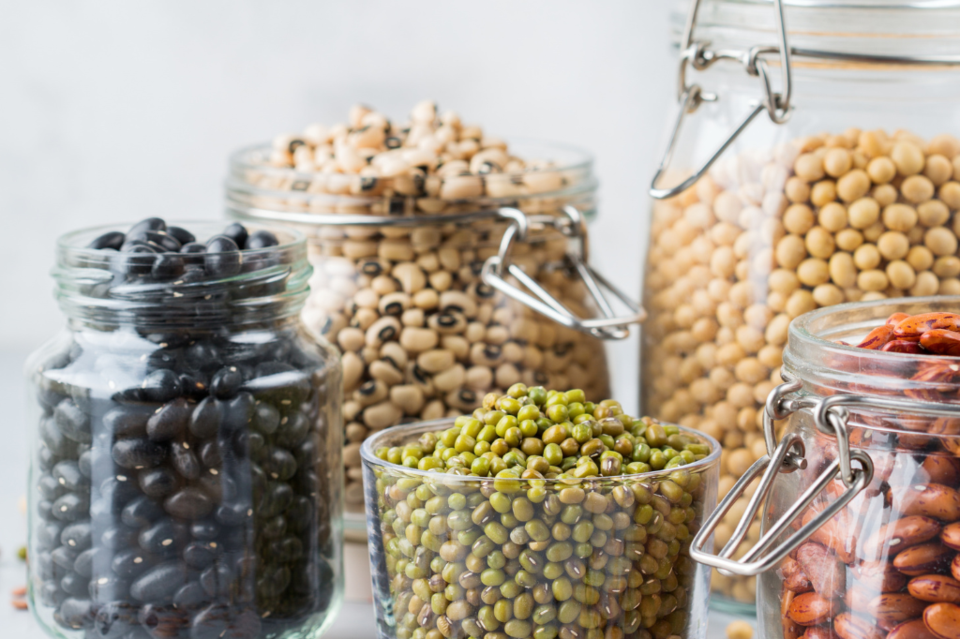
The Health Benefits of Fibre
Besides keeping your digestive system in tip-top shape, fibre boasts a world of health benefits that can improve your day-to-day life and support your health goals. A high-fibre diet is associated with weight management, as fibre-rich foods tend to be more filling, reducing overall calorie intake. And research suggests that fibre may help lower the risk of developing chronic conditions such as Type 2 diabetes, stroke, and certain types of cancer. By keeping you fuller longer, regulating blood sugar levels, and supporting gut health, fibre truly earns its title as a versatile nutritional powerhouse.
Easy Ways to Get More Fibre
Now, let's talk about practical ways to boost fibre intake through food sources. Here are the top foods to get more of that are all abundant in fibre:
- Apples
- Berries
- Oranges
- Vegetables such as broccoli, carrots, and leafy greens
- Whole grains like quinoa, brown rice, and whole wheat foods
- Snacks like nuts and seeds
- Legumes like chickpeas and lentils
And don't forget the importance of hydration—drinking plenty of water helps fibre do its job effectively in your digestive system—in other words—it keeps things moving along nicely.
The daily recommended intake of fibre varies based on age and gender. The general guideline for adult men and women is around 25 to 38 grams of fibre a day. Older adults may also benefit from slightly higher fibre intake to support digestive health and regularity, aiming for around 21 to 30 grams daily. Children need less fibre, typically between 19 and 25 grams.
If, despite your best efforts, you find it challenging to meet your fibre needs through diet alone, supplements can be an option, especially for individuals with specific health conditions or dietary restrictions. Consult with a healthcare professional to determine if fibre supplements are suitable for you and to ensure you choose the right type and dosage.
The Takeaway
Fibre is a fundamental nutrient vital in maintaining overall health and well-being. Whether you're aiming for better digestion, weight management, or reducing the risk of chronic diseases, fibre-rich foods should be a staple in your daily diet. A good rule of thumb is to get between three and five servings of the fibrous foods listed above to meet your daily fibre needs.
About the Author

Alicia is a journalist and editor in digital and print media specializing in health, nutrition, fitness, and wellness. She was previously the Editorial Director of Clean Eating and Vegetarian Times. Her work has also appeared in Hone Health The Edge, Yoga Journal, Women’s Running, and Oxygen, among others. In addition to being a content creator, she's an ISSA-certified nutritionist, certified personal trainer, and fitness studio owner in Toronto. Alicia loves spreading the word about helpful, science-backed health information, and she can be contacted via her website at aliciamtyler.com.

